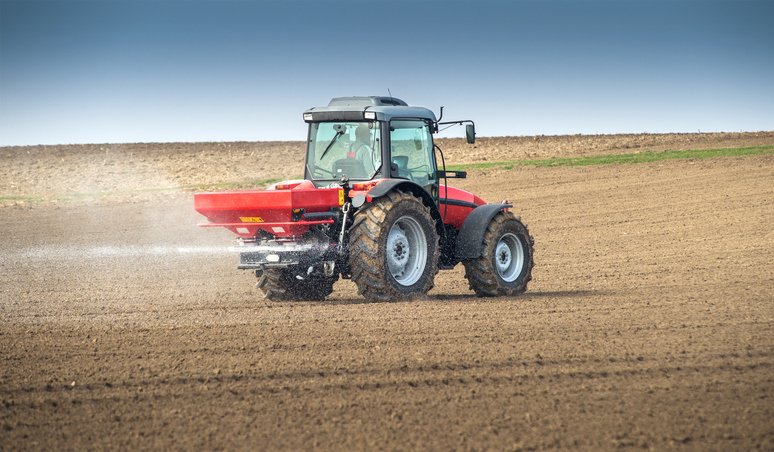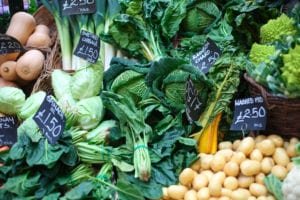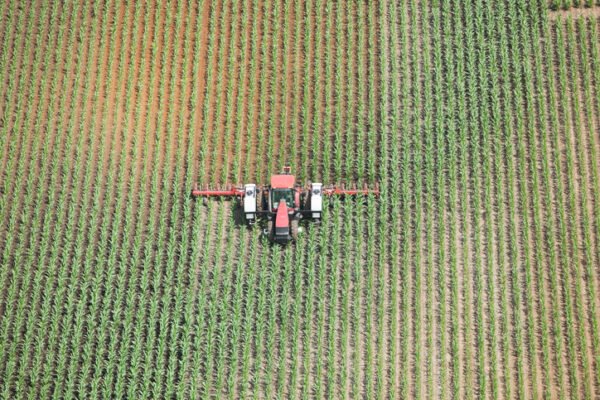Plants like cornflowers, once abundant on arable land, are on the verge of extinction, dropping 99% in 50 years.
UK farmland birds have seen a 48% decline over the same period and Europe has lost over half a billion birds in 40 years.
Pesticides and fertilisers have been singled out as the biggest cause, and global biodiversity assessments show excess nitrogen in the air and water as one of the most significant threats to biodiversity.
How to feed the world
The UN Environment Programme’s Colombo Declaration recently launched a global ‘Halve Nitrogen Waste’ campaign, highlighting how improved nitrogen efficiency supports climate, nature and health goals, while saving $100bn globally annually.
The Soil Association is clear that if we’re going to fix the nitrogen problem, we need to start measuring fertiliser use and helping farmers transition to a system of farming that recycles nitrogen, closes nutrient loops and prioritises healthy soil – all while providing the right food to supply a healthy, sustainable diet to a growing global population.
We can feed the world without relying on the overuse of harmful synthetic fertilisers. In fact, even with the nitrogen use we see today, millions of people are malnourished.
Modelling suggests that in Europe, feeding a growing population a sufficient diet is possible (subject to dietary changes ) without the need for synthetic nitrogen, and while recognising planetary boundaries.
Agroecological farm systems work within natural cycles, like the nitrogen cycle, and help to improve soil health for nature, climate and food security though a shift to the circular use and management of nutrients.
A recent model by think-tank IDDRI laid a pathway for Europe to become agroecological by 2050.
Without the shortcuts of synthetic nitrogen inputs, agroecological systems rely on the health, quality and structure of soils to support crops.
It is these healthy soils that absorb run-off, filter nutrients and have a higher volume and diversity of soil microorganisms to break down nutrients more effectively.
It’s not an impossible ask; Soil Association Certification has been certifying farmers that grow healthy food – without synthetic fertilisers – for over 50 years.
Fertiliser supplier profits
Over the last year, three of the biggest fertiliser suppliers in the UK have made an incredible £5.45bn in profit. This shocking revelation comes at a time when much of the UK farming sector is in crisis.
Last year’s report by Sustain uncovered the tight profit margins for many farms, leaving little in the bank to buffer against volatile markets and few reserves to build on-farm resilience to the unstable and changing climate, leaving many farmers considering leaving the sector.
We have recently seen that governments are prepared to intervene on food access, availability and distribution. It’s time for the government to step up and set targets for reducing nitrogen fertiliser use, and support farmers to transition to nature-friendly farming methods, like organic, in order to reach their net zero targets.
Be a climate activist
By buying organic this Organic September, you’ll be helping to support a wholesale shift away from damaging and polluting farming practices, and towards an approach to farming that respects and promotes all-round health.
A recent study revealed that on average an organic farm system uses recycled nitrogen for 50-100% of total needs, while conventional systems, usually dependent on synthetic fertilisers, recycle only 10-30%.
Buying organic is a form of climate activism; in fact, it addresses many of the key environmental issues on which Brits want to see more government action.
Organic agriculture protects green spaces, slashes CO2 and other greenhouse gas emissions and reduces air pollution.
At the same time it boosts biodiversity and soil health, helping land to become more resilient to the threats of extreme weather. All while creating food that prioritises animal welfare and generates nutritious food that tastes delicious.
Support climate and nature this Organic September; click here to sign the petition telling the government: ‘there’s no net zero without fixing fertiliser’
 Play Video about This Rock Might Just Save The World
Play Video about This Rock Might Just Save The World Play Video about Play 2 hours of rock
Play Video about Play 2 hours of rock Play Video about Play 2 hours of brook
Play Video about Play 2 hours of brook Play Video about Play 2 hours of sheep
Play Video about Play 2 hours of sheep















































